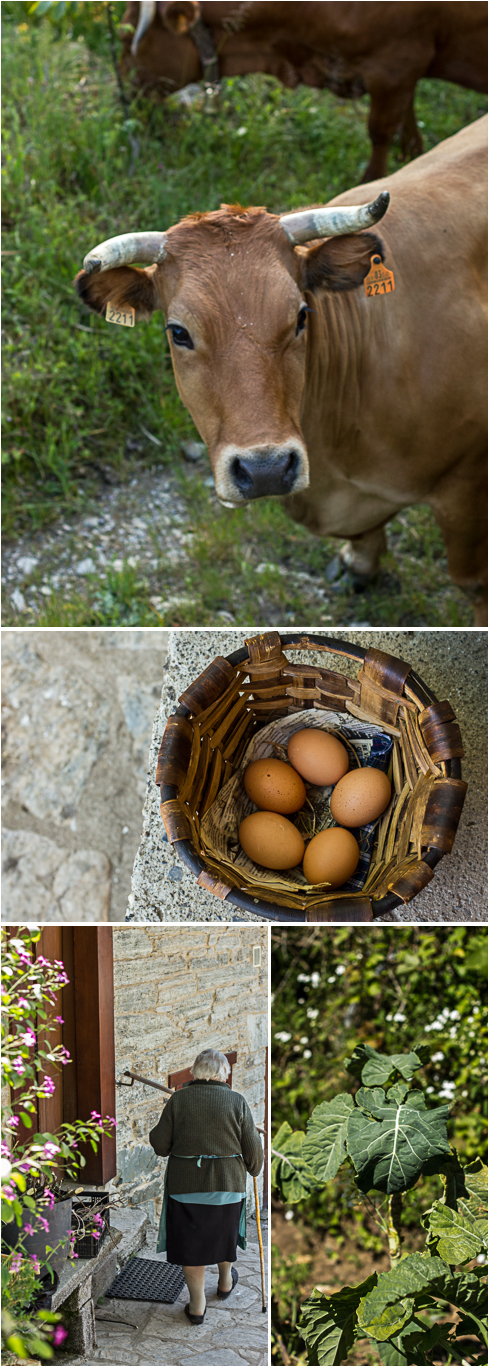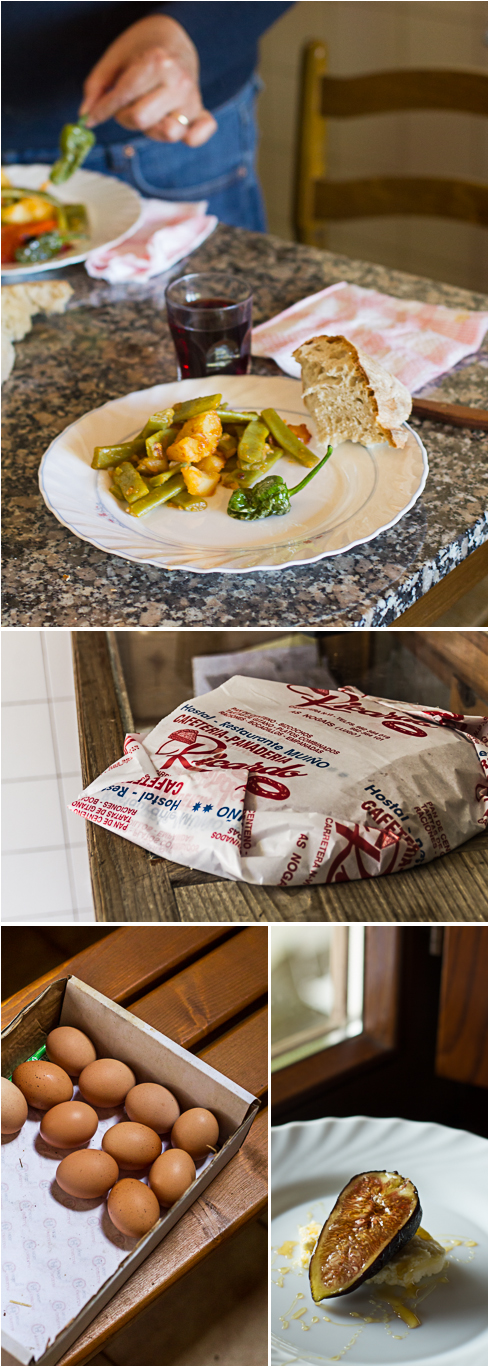Galicia: Te gusta?
I'm back from a recent trip to Galicia and I wanted to share some of the images I made as well as some of the memories I have from this place. As many of you know, I was born in Spain or more specifically - as my relatives remind me often - in Galicia. Which is different. When we were kids, we visited in the summers from our home in the North of Canada. The differences were dramatic. In Yellowknife, the Frozen North, the chickens came wrapped in plastic on meat trays in the YK Super A, the local grocery store. In Galicia hens strolled around the yard of my grandparents house and baby chicks were gifts from my Abuelo (grandfather) to me and my two sisters when he came back from the local market. Today in North America we would call it a 'Farmer's' Market. In Galicia, then as now, no one felt the need to specify this obvious detail. We were disappointed to learn that grandma's chickens laid no more than one egg a day and sometimes not even any. This did not seem to tally with the pictures in our kindergarden schoolbooks of mother hen sitting on a mountain of eggs. Our relatives viewed us as city slickers (clearly not the case as anyone who has been to Yellowknife can attest), but our words and actions revealed that we ignorant of country ways. They laughed when my sister tried hopelessly to shake a chicken in order to induce an increase in egg production.
Big excitement happened when one of the neighbours would move cows from one field to another yelling; Vaca Ve! My sisters and I would copy them, grabbing a stick and yelling the refrain, not really understanding the words but getting the message. Today there are fewer cows in the village. But they still move back and forth in a rhythm that marks the days. Today they wear ear tags and in the words of one of the neighbours, "they have more paperwork than we do".
When we were kids, my grandparents ran a little bar come shop and their little corner of the world seemed a bustling place with neighbours dropping by to have a drink, a slice of jamón or to buy some basic essential like shampoo or the famous black soap from LaToja.
We found it all so very amusing, helping to serve the drinks and being paid in chocolate and Chupa Chups. Much of our time was spent being poked by neighbours and relatives who spoke freely with their pronouncements as to which of us was the fattest, skinniest, best looking, tallest, most intelligent etc. “The food must be very bad in Canada. The children are so skinny” The bar is no more but the neighbours still have a lot to say. Now they tell me I am fatter but in a good way. “Estás bien ahora.”
On of the first spanish phrases I remember learning was 'Te gusta?'" Do you like it? Someone was always offering food. (What is a local custom became even more impressive presumably because of our perceived state of malnutrition.) Most of the things being offered to eat were too simply too scary for our young and picky palates to consider. Squid? Octopus? No thank you. "No me gusta". We seemed happy to exist on a diet of Fanta de Naranja, Maria Biscuits and Cola Cao with the odd tortilla francesa (omelette) thrown in. But I do remember always liking jamón and chorizo.
Today, I’m making up for my prior fussiness. In fact, there seems to be little that I don’t like. This is simple food; Green Beans with Garlic and Smoked Paprika, Kale with chorizo and a perfect farm fresh egg, a slice of empanada made in the local panadería. Octopus is boiled and sprinkled with salt and paprika and served with boiled potatoes.
The cooking is not complicated. The ingredients are what make it. And nature provides. Y si me gusta!

